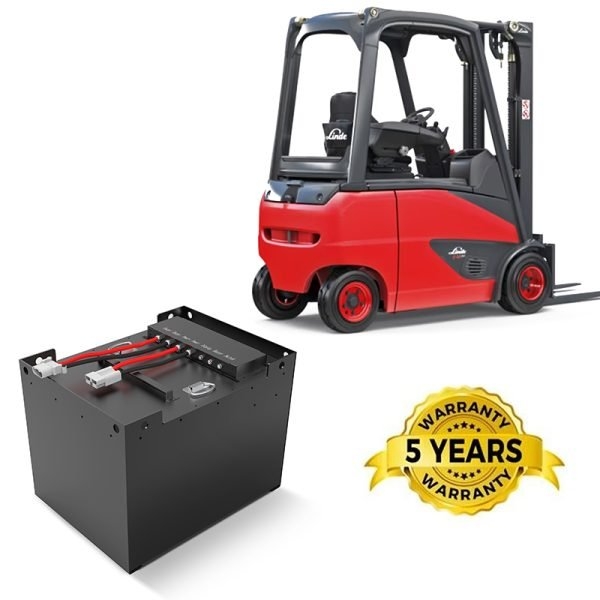Introduction:
Welcome to the official Heltec Energy blog! If you are considering replacing your forklift battery with a lithium battery in the near future, this blog will help you understand lithium batteries better and tell you how to choose the right lithium battery for your forklift.
Lithium Forklift Battery Types
There are several types of forklift lithium batteries on the market, which are mainly distinguished by the cathode material used. Here is a detailed explanation of several forklift lithium batteries:
Lithium cobalt oxide (LCO): Lithium cobalt oxide batteries have a higher energy density, so they can provide longer driving time and lifting capacity.
However, cobalt is a relatively scarce and expensive metal, which increases the cost of the battery. Another disadvantage is that under certain conditions, such as high temperature or overcharging, there may be a risk of thermal runaway, affecting safety.
Lithium manganese oxide (LMO): Lithium manganese oxide batteries are relatively low in cost because manganese is a more abundant element. They are safer and have higher thermal stability, reducing the risk of thermal runaway.
However, compared with other materials, lithium manganese oxide batteries have a lower energy density, which may limit their use in some applications that require high energy density.
Lithium iron phosphate (LFP):
Lithium iron phosphate batteries are very popular in the modern material handling industry. They are very safe because they are not prone to thermal runaway or fire even in the case of short circuit, overcharge or over discharge.
Lithium iron phosphate batteries also have a long cycle life and can withstand more charge and discharge cycles while maintaining stable performance. Since both iron and phosphorus are relatively abundant elements, this type of battery has a relatively low cost and low environmental impact.
In short, lithium iron phosphate batteries dominate the lithium battery market for material handling equipment such as forklifts with their excellent safety, long life, low cost and low environmental impact. It is the most popular type of lithium forklift battery in the modern material handling industry.
Forklift Lithium Battery Size
Choosing the right battery size is critical to forklift performance, which directly affects the forklift's operating time, load capacity, and overall efficiency. Indeed, the choice of forklift battery size is closely related to the size, brand, manufacturer, and model of the forklift. Larger forklifts generally require larger capacity batteries because they require more power to move heavier loads or perform longer operations.
The weight and size of the battery also increase with the capacity. Therefore, when selecting a battery, it is important to ensure that the size and weight of the selected battery match the specifications of the forklift. A battery that is too small may not meet the power requirements of the forklift, while a battery that is too large may exceed the forklift's load capacity or cause unnecessary weight increase, affecting the forklift's maneuverability and efficiency.
Lithium Forklift Battery Specs
There are some important battery specs you may want to look out for when shopping for a lithium-ion forklift battery:
- Type of forklift truck it will be used on (different classes of forklift types)
- Charging duration
- Charger type
- Amp-hours (Ah) and output or capacity
- Battery voltage
- Battery compartment size
- Weight and counterweight
- Operating conditions (e.g. freezing, high-intensity environments, etc.)
- Rated power
- Manufacturer
- Support, service, and warranty
Forklift Lithium Battery Size
Choosing the right lithium battery size is critical to forklift performance, which directly affects the forklift's operating time, load capacity, and overall efficiency. Indeed, the choice of forklift battery size is closely related to the size, brand, manufacturer, and model of the forklift. Larger forklifts generally require larger capacity batteries because they require more power to move heavier loads or perform longer operations.
The weight and size of the lithium battery also increase with the capacity. Therefore, when selecting a battery, it is important to ensure that the size and weight of the selected battery match the specifications of the forklift. A battery that is too small may not meet the power requirements of the forklift, while a battery that is too large may exceed the forklift's load capacity or cause unnecessary weight increase, affecting the forklift's maneuverability and efficiency.
Post time: Jul-10-2024

-3.jpg)



